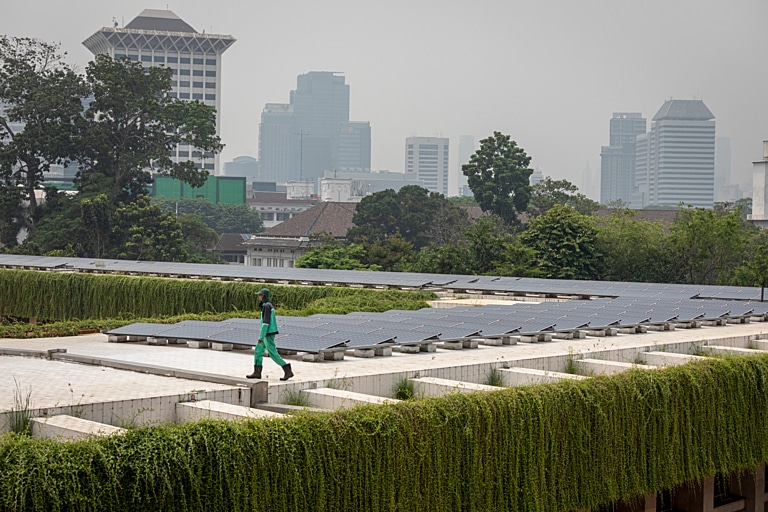The Social Impact of Renewable Energy Initiatives
Renewable energy has experienced significant growth in the last decade, driven mainly by advancements in infrastructure for wind and solar power. This rise in renewables not only benefits the environment but also enhances the resilience of vulnerable power grids and supports economic development. Moreover, future renewable energy initiatives offer job opportunities that prioritize community well-being and provide workers with transferable skills for a sustainable labor market.
—
Renewable energy has been on the rise in recent years. In 2022, people produced over 8,000 terawatt hours of renewable energy. This represents a 198% increase in renewables since 2000 and it is largely due to improvements in renewable energy infrastructure, which have increased the use and efficiency of wind and solar power.
Initiatives to improve our energy efficiency and switch to renewables are not just good news for the planet; they also serve an important social function. When leveraged correctly, renewables improve the resilience of at-risk grids and support economic growth.
Future energy initiatives will create jobs without undermining the community’s health and well-being. This is key, as many traditional forms of energy extraction can hurt the local ecosystem while damaging the long-term health of miners and oil workers. Conversely, careers in renewable energy prepare workers for the future and give them transferable skills that will serve them well in the wider labor market.
Energy Equality
The past century has been dominated by issues surrounding energy inequality. Put simply, nations with reliable access to energy have prospered, while those that have not secured their energy future have had to endure the hardships associated with blackouts and inadequate access to electricity.
This is echoed by the data collected by the World Bank’s 2023 Energy Progress Report, which shows that countries with low gross domestic product (GDP) per capita, such as Burundi, Chad, and Niger, also have poor access to electricity.
Renewables can help address energy equality by facilitating the creation of decentralized energy systems. Decentralizing energy systems means that energy producers locate their facilities closer to the site where energy will be used and is typically associated with renewable sources.
This is ideal in nations with low electricity rates, which tend to have high sunlight hours and are perfect candidates for decentralized solar-powered energy grids. Employing this approach can lead to job creation and improve the health of the community, too.
You might also like: 3 Challenges to South Africa’s Clean Energy Transition
Job Creation
Detractors of renewable energy fear job losses will follow a switch to a more renewable grid. However, in reality, the rise of renewables will create new job opportunities and provide potentially exciting careers for thousands of people.
Examples of careers in renewable energy include:
- Solar Photovoltaic Installer: Qualified installers are needed to supply and fit the world’s solar panels. This job is crucial, as proper installation ensures that the panels are as effective as possible. BLS data reports that U.S. installers earn a salary of $45,230 per year and will experience a 22% jump in demand through 2032.
- Wind Turbine Technician: Wind power has been on the rise in recent years. This has fueled the demand for technicians who can install, repair, and perform routine maintenance on the mechanical components of the tower.
- Electrical Engineer: Electrical engineers are responsible for a wide range of tasks related to renewables, the grid, and home energy devices. They also earn an average of $103,320 and are in demand currently.
- Data Scientist: The renewable energy grid relies on accurate data collection and analysis. Data scientists are, therefore, integral to the smooth functioning of renewable energy systems. These data scientists will be in even higher demand in the future as nations continue to commit to renewable energy sources.
Renewables represent a huge industry that already employs millions of people. Demand for skilled workers in the renewable sector will only grow as more energy is sourced from wind, solar, and hydropower. This underlines the fact that renewables serve a vital social function by providing lucrative jobs with great salaries and transferable skills.
You might also like: Meeting the Demand for Green Skills in 2024
Improved Health
Communities around the world are reliant on energy extraction for income. However, occupations like coal mining and oil rigging are notoriously bad for the health and well-being of workers and local communities. Miners often experience long-term illnesses related to breathing poor-quality air, and folks who live near oil refineries report respiratory problems.
Conversely, green energy solutions like solar and wind power do not detract from the health of the local community. Folks who work on wind turbines and solar panel fields do not risk their long-term well-being and are not exposed to harmful chemicals that are commonly associated with working on an oil platform, either.
That said, there are some occupational hazards associated with renewables. For example, those who work with biofuels must be properly protected against ethanol and alcohol. These substances are highly caustic and may result in chemical exposure. Similarly, folks who work in the fabrication of wind turbines must be protected during the buffing and sanding process. Inhalation of fine materials can cause respiratory issues and illness.
On balance, however, green energy production has a minimal impact on the well-being of workers and does not undermine the overall health of local communities. In fact, communities that live near solar stations and wind turbines may even see an uptick in health outcomes due to increased funding and spending in the area. This is good news for less economically developed nations that are open to renewables and wish to engage communities in renewable energy efforts.
Featured image: Aji Styawan/Climate Visuals
You might also like: Renewables Will Dominate World’s Electricity Demand Through 2025, IEA Report Says
- Forums
- Political Debate
- Accelerate the World's Transition to Sustainable Energy - to fight Anthropogenic Climate Change





